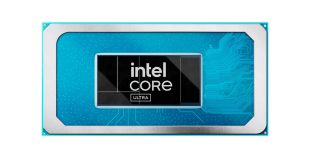Application processors based on technologies developed by ARM Holdings power the vast majority of smartphones and media tablets thanks to their high performance amid relatively low power consumption. While existing chips and technologies from ARM can also power wearable computing devices, to make the latter last longer on battery life ARM is developing a new breed of cores with even lower power consumption.
The microprocessors under development could consume just nanowatts of power and be in wearables that blend with the body easily, said Noel Hurley, deputy general manager for CPUs at ARM, reports ComputerWorld. The new chips for wearable computing devices should integrate numerous sensors, which will make it easier for manufacturers of actual devices to build them.
Small weight and tiny size are key to success of wearable computing devices. The biggest and the heaviest component of wearables is their batteries. In a bid to shrink their size without harming battery life of devices, more power efficient application processors are needed.
“The weight and profile of the product is really important,” said Mr. Hurley.
ARM licenses its technologies to various chipmakers. Technologies currently under development will reach the market sometimes next year at the earliest. Devices based on those chips will get widespread a couple of years from now.
At present ARM-based chips power such wearable devices like Google Glass and smart-watches from Samsung Electronics.
Discuss on our Facebook page, HERE.
KitGuru Says: Microprocessors with nano-watt power consumption seem to be rather impressive on paper, but will they really deliver performance necessary to provide a good user experience? We will find out in a couple of years from now!
 KitGuru KitGuru.net – Tech News | Hardware News | Hardware Reviews | IOS | Mobile | Gaming | Graphics Cards
KitGuru KitGuru.net – Tech News | Hardware News | Hardware Reviews | IOS | Mobile | Gaming | Graphics Cards



